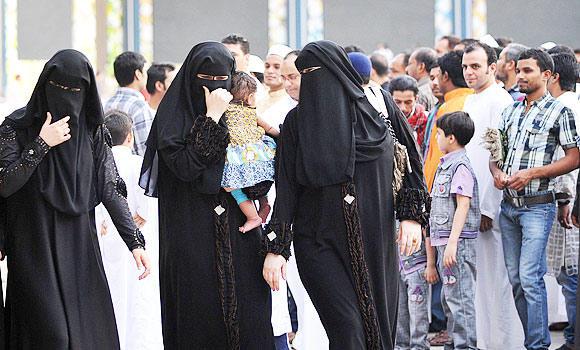
Jeddah, May 12: A majority of teachers employed in international schools and other places are under the sponsorship of their fathers and husbands. But they say they are unwilling to transfer their iqamas under the sponsorship of the schools they are working in.
According to the Ministry of Labor, housewives are not eligible to work as it is clearly stated as such on their residency permits. This is regardless of whether it is paid or unpaid employment. The Ministry of Labor has passed a ruling for all illegal employees to legalize their status within three months.
However, the ministries of Labor and Interior did not include in their long list of concessions in Friday’s announcement expats under the sponsorship of a relative, but working in schools. The Ministry of Education also has not issued any ruling.
Teachers and support staff remain in a state of flux as the government attempts to sort out their status. Yet school authorities have expressed concerns regarding the transferring of iqamas of female teachers.
First, teachers want a guarantee that they can transfer their iqama back to their father’s or husband’s sponsorship in the event of a termination of their own contract.
Secondly, if the male guardian loses his job (termination or resignation) he may be allowed to continue residing in the Kingdom on a “mahram” status since women need a male guardian to live in this country. Finally, they are demanding that the schools give workers family status should they decide to transfer their iqama to the school’s sponsorship.
Padma Hariharan, director and head of Novel International Group of Institutions, said they have 42 teachers in their school but only 5 percent agreed to transfer their iqama to the school. But even the workers who agreed to the iqama transfers have questions because the school authorities themselves have no idea of what their status would be and what benefits they are entitled to.
“We don’t know what papers are required for this,” Hariharan said. “We didn’t receive any rules and regulations from the Ministry of Education. So we would appreciate if we could have a general meeting with Ministry of Education or relevant authorities where we will be able to find out about the formalities, the time it will take to transfer the iqama and how much it will cost. Right now, we are being given different estimates of between SR 2,000 and SR 12,000.”
She also said that human resources departments could come up with a certain set of rules, which would define the status of both employees and their children. As the transfer of iqama to the school sponsorship does not offer a family status, children’s fees and other concerns should be dealt with.
“The decision of the Labor Ministry to legalize schools and teachers would solve many problems,” she said. “The speedy issuance of work permits to female employees would be a very wise decision. Otherwise, in the next term a number of schools will suffer as transfers also take time and the ministry hasn’t issued any rules unti now.”
Sadiya Kaleem, a principal at another school, said they have not received any information on the rules and regulations related to transfer of teachers’ status.
“A few of our teachers are ready for the transfer but they have their conditions, which have not been confirmed or made clear by the Ministry of Education, she said. “So we are waiting for the good news.”





Comments
Add new comment